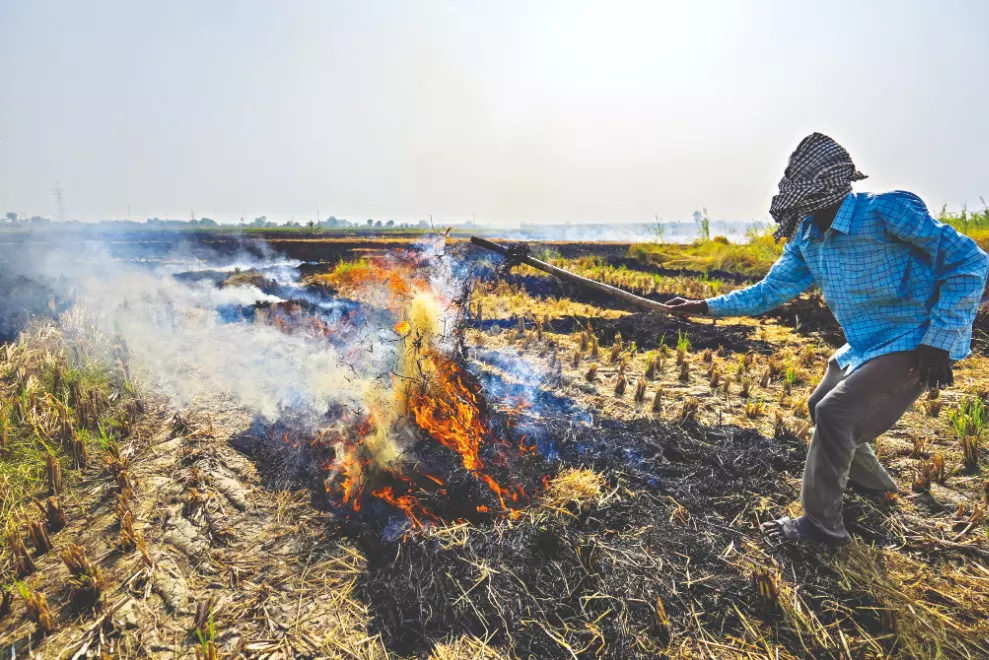Punjab stubble fires raise Delhi smog alarm

New Delhi: With the paddy harvest season underway, the first signs of stubble burning have re-emerged in Punjab, setting off alarms over Delhi’s air quality. In just five days, the state has reported around 27 farm fire incidents despite repeated awareness drives and government warnings. Officials have identified 663 villages across eight districts as hotspots for the practice, based on trends from the past three years.
Environmental experts caution that Delhi and the wider National Capital Region (NCR) will bear the brunt in the coming weeks. October and November, when weather conditions trap pollutants close to the surface, are already the most hazardous months for residents. The addition of smoke from crop residue fires threatens to turn the air toxic.
“Every year, stubble burning adds a dangerous layer of pollutants to Delhi’s already fragile air quality,” said Dr. Rakesh Sharma, an environmental activist from Delhi. “Vehicular emissions and industrial smoke are constant problems, but farm fires create sudden spikes in PM2.5 levels that overwhelm health systems.” The Supreme Court has recently hinted at possible prosecution of farmers found burning their fields. However, experts argue that punitive measures alone cannot solve the problem. The Commission for Air Quality Management (CAQM), set up in 2020 to coordinate among Delhi, Punjab, Haryana, Uttar Pradesh, and Rajasthan, has struggled to enforce its powers effectively. Critics say political pressures and lack of transparency have weakened the body’s role.
Farmers, meanwhile, insist they are caught in an economic bind. Burning crop residue remains the cheapest and fastest way to clear fields for the upcoming wheat sowing season. “The government only tells us not to burn, but doesn’t give practical solutions,” said Gurpreet Singh, a farmer from Punjab. “Machines like the Happy Seeder are too costly. Even subsidies don’t cover the full expense. We cannot afford delays in sowing.”
Another farmer from Patiala added, “People blame us every year, but they don’t see the pressure we are under. Debt, rising costs, and time constraints leave us with few choices.”
Punjab Police has already registered 12 FIRs against farmers since September 18, but observers note that such action is unlikely to deter thousands more who will resort to burning in the coming weeks.
Health experts in Delhi are warning residents to brace for worsening conditions. “If last year is any indication, air quality could dip into the ‘severe’ category by late October,” said Dr. Meena Verma, a pulmonologist at a private hospital. “This means a surge in respiratory illnesses, particularly among children and the elderly.”
As farm fires begin to rise, Delhi residents now face another season of hazardous smog, a crisis that experts say requires long-term planning, sustained incentives for farmers, and consistent political will.



